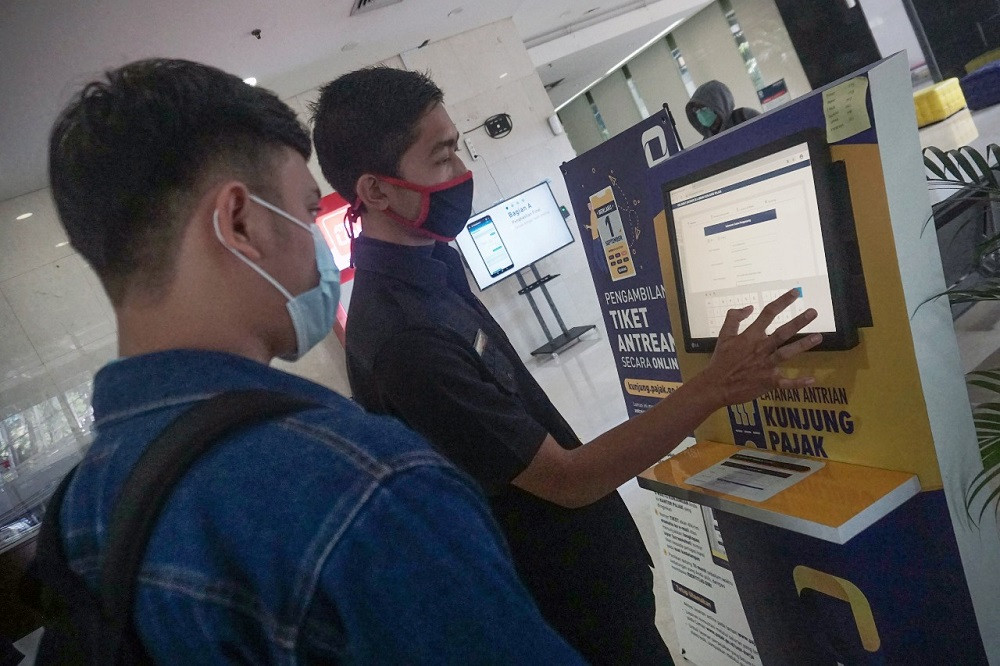Popular Reads
Top Results
Can't find what you're looking for?
View all search resultsPopular Reads
Top Results
Can't find what you're looking for?
View all search resultsTax office defends proposed food tax
Analysts question VAT plan, warn of potential price increases
Change text size
Gift Premium Articles
to Anyone
T
he Taxation Directorate General has defended a draft to amend value added tax (VAT) rules that will levy taxes on staple foods and education services, arguing that the proposed changes will not place a burden on low-income households but make taxation more just for everyone.
Tax office spokesman Neilmaldrin Noor said the prevailing VAT scheme prevented the government from taxing consumption by upper-income households, as they were treated the same as lower-income households. He said this policy meant the amount of tax collected was lower than it should be.
Noor cited as an example Wagyu, a premium type of beef imported from Japan and consumed primarily by upper-income households. Like regular beef sold at traditional markets, it is not subject to VAT under the existing law. A different treatment should apply for such beef, Noor argued. He also said making school tuition subject to VAT would not affect lower-income families much, because they could choose schools that were cheaper or free.
“Those who can afford [expensive goods and services] do not pay VAT […]. The [rules] currently in place are not well targeted. Therefore, we are fixing this,” Noor told reporters during an online press conference on Monday.
Read also: Govt, House move closer to talks on new tax law
The new VAT scheme is included in a proposed amendment of Law No. 6 of 1983 on general tax provisions and procedures. The proposal also includes a new carbon tax, a higher tax rate for high-net-worth individuals (HNWI) and a plan resembling the 2016 tax amnesty.
The government has presented the amendment as an effort to increase state revenue in a bid to push the state budget deficit back below the threshold of 3 percent of the gross domestic product (GDP) by 2023, as required by Law No. 2 of 2020 on the pandemic response.
In the prevailing law, staple foods and education services are included on a list of tax-free goods and services. The proposed amendment would make such items subject to VAT. It would also increase the VAT rate from 10 percent to 12 percent, but that rate would only apply to items for which no specific VAT rate has been set.
Noor explained that the tax office would use a multi-tariff system in which different VAT rates – from 5 percent to 25 percent – could be applied to specific goods and services. That system, he said, would allow the government to tax premium goods and services at higher rates, while applying lower rates to basic necessities.
Read also: Let them eat cake?
Institute for Development of Economics and Finance (Indef) analyst Enny Sri Hartati questioned the government's claims, arguing that even a VAT rate as low as 1 percent would still cause a substantial increase in prices.
She said most staple food items were characterized by a high degree of price elasticity, meaning an increase in price could prompt consumers to opt for cheaper substitutes. If consumers switched from a premium to a cheaper, non-premium good, that would lead to a price hike in the latter and thus affect lower-income households.
She also noted that distribution chains for staple foods in Indonesia were typically long, so imposing VAT would lift prices within each chain and add up to a significant increase by the time goods reached end users. Moreover, staple foods served as raw ingredients in processed food, so a VAT on staples may hike other food prices too.
“Therefore, it still has a significant impact on lower-income households,” Enny told The Jakarta Post on Monday.
VAT charged on school tuition, meanwhile, would harm the education system, Enny added, arguing that the government had missed the fact that education had become commercialized.
She said many lower-income households had no choice but to enroll their children in schools with high tuition fees, as this was deemed to give them better university or career opportunities than cheaper schools.
“VAT is not a solution to the commercialization in education,” Enny said.
Finance Ministry spokesperson Yustinus Prastowo said the new VAT scheme would not be implemented soon or in the near future, as the government did not want to jeopardize the economic recovery that was still in an early stage.
“The government is committed to ensuring adjustments do not occur during the pandemic, but we are waiting for the economy to recover,” Yustinus said in an online discussion held by Narasi Institute on Friday.
Center for Indonesia Taxation Analysis (CITA) research manager Fajry Akbar creating a multi-tariff VAT scheme would pose a significant challenge, considering the complex task of categorizing goods and services as premium or non-premium items. Thus, the government would require ample preparation time.
“I think the new VAT policy will not come into effect soon, or even in 2022,” Fajry told The Post on Monday.










